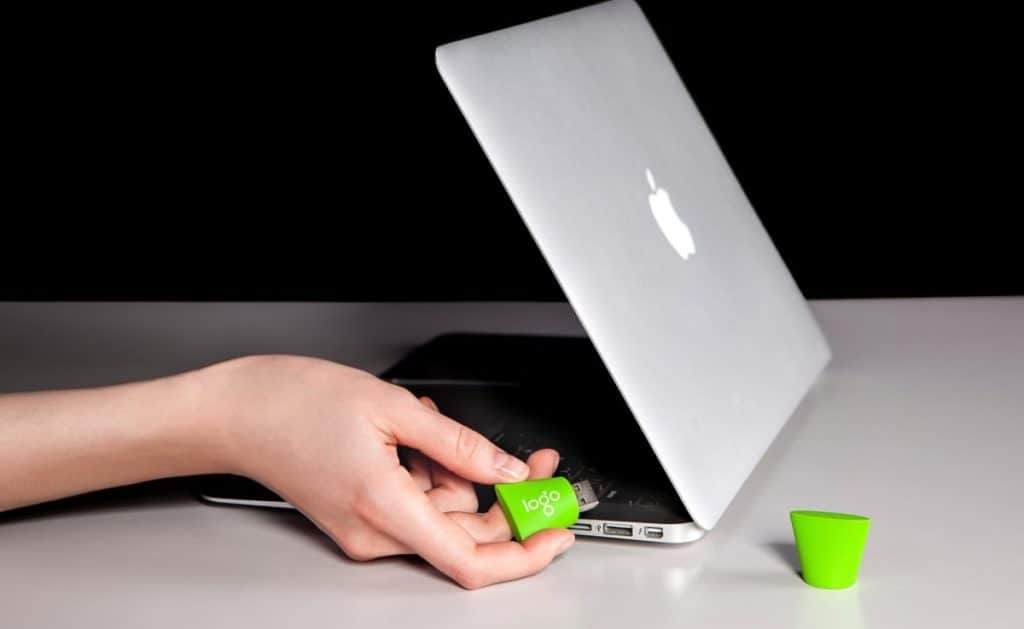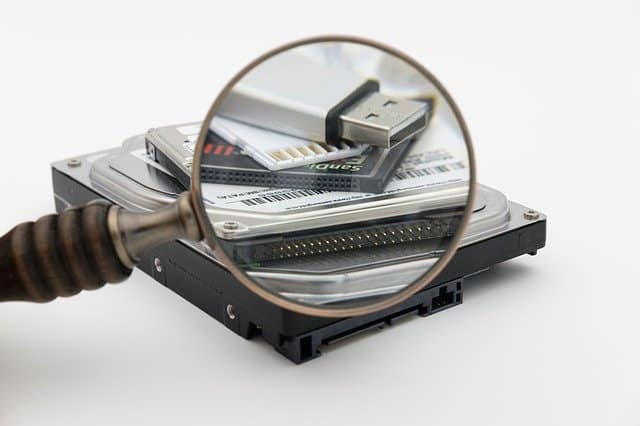When considering data privacy, it is crucial to think about the traces a USB flash drive leaves on computers. Does a USB flash drive leave a trace on a computer, and what can you do about it?
When downloading files directly to a flash drive, you do leave some trace of the file on the computer. The file downloaded to a USB flash drive could be traced on the computer’s temporary file folder, browser history, and internet router log.
There are certain precautions you can take to protect your data and privacy. When it comes to understanding the digital footprints of flash drives on your PC, we have you covered.
What Trace Does the Flash Drive Leave?
When downloading files to a flash drive, your computer will automatically save a temporary version of the file. This version acts as a backup so if the system crashes, your data is saved to the computer to be retrieved later on.
It’s this backup file that makes traces left by a flash drive relatively easy to find for someone with technical understanding.
To erase the digital footprints your USB flash drive may leave on a computer, use a program like CCleaner to delete the computer’s temporary files, erase browser history and internet log files. Also, use a VPN service to connect to the internet when downloading files.
Here are some places someone tracing information would look:
- Search History: Even for those with little to no computer skill, your browser search history is readily available. If your file was not saved to the computer, your history would still be recorded through the browser.
- Unused Portions of Your Hard Drive: This part of your computer memory will not be quickly accessible by search, but even portions of deleted files are kept here. These files can be found by running recovery programs on your hard drive.
- Log of Web Activity Kept by an ISP: Your ISP (or Internet Service Provider) is likely tracking all internet activity. This log would be accessible to government organizations like the police or FBI in the event of criminal activity or potentially sold for marketing purposes.
- Connection Logs on Modem and Router: Your modem and Wi-Fi router also store your online activity logs. These logs are sorted in chronological order and document any errors that show up while browsing.
- Malware/Firewall Logs: If you have any software downloaded on your computer to protect you from viruses, they will most likely also have a log of your download history.
While you might not notice the trace of a file with a quick search of your computer, it’s there! It’s a good idea to be aware of what files show up to the casual observer and what might be hidden in the depths of your laptop.

Reducing Your Flash Drive Digital Footprint
The only way to completely erase any trace of your activity is not to use someone else’s computer at all. For most of us, that is not a practical solution; a USB flash drive is designed to move files between computers. Unless you plan to pack up your life and move to an isolated cabin in the woods, you need a way to mitigate your digital footprint.
It is possible to remove some trace left by your download on the PC:
- Use A VPN Internet Connection: A VPN (Virtual Private Network) internet connection shields your online activity from the Wi-Fi admin, router log, and the ISP (Internet Service Provider). If you plan to download some sensitive information, especially on a public Wi-Fi access point, use a VPN connection to shield your data from prying eyes. For my money, I go with NordVPN because of the great features, ease of use, and low cost compared to other providers. NordVPN often runs specials at reduced pricing on their service; click here to check NordVPN’s current offering.
- Delete the Computer’s Temporary Files and Logs: Some programs are designed to clean your digital footprints. CCleaner is a highly-rated and easy-to-use one. Most impressive is that CCleaner has a portable version that runs directly from USB flash drives! CCleaner also has a Pro version that has even more powerful features. Here is a link to download.
- Clean Up Your Download History: If you do not use a program like CCleaner, make sure to go into your browser history and delete the data stored there. If you are using Chrome, click on the upper right corner and hit “downloads” in the drop-down menu. There should be a small “x” next to each item, which will remove it from your history.
- Erase Your Modem and Router Logs: You can clear your history from your modem or modem router from your computer browser, but you would need Admin account access (bypass this step by connecting to the internet via a VPN). For specific instructions, go to the hardware manufacturer’s website. They will often have a step-by-step guide to help you maneuver the clean-out.
Important Note: Data vs. History
While sometimes used interchangeably, browsing data and browsing history are not the same things. The term “browsing data” encompasses all the information stored and tracked when browsing, such as history, cookies, or passwords. Browsing history refers explicitly to the tracking of websites visited on the browser.
Who Can Access Your Data
When it comes to tracing your download activity, most individuals will need direct access to your PC. However, that is not always the case. Here is when you should be concerned with who can find the traces left on your PC:
If You are Selling Your Computer
If you are selling your computer, it is good to remove as much data as possible from the hard drive. You can see what files have left traces with software such as Recuva, which allows you to discover what has been deleted, lost, corrupted, etc. To get rid of those files, use Eraser or something similar to clean out your PC. CCleaner has a feature that wipes clean all the hard drive’s sensitive area, so no information is recoverable.
If You are Using a Work Computer
Odds are you will not be able to fool the tech-savvy IT manager your company employs. A good rule of thumb is to keep work and personal life separate when it comes to your laptop. If that is not possible, be sure to keep all downloads professional and work-appropriate as your manager is likely to access your online activity.
If There is a Subpoena
If you, your company, or your ISP is subpoenaed, there is little to nothing you can do to prevent someone from finding traces on your computer. Organizations like the police and FBI have sophisticated forensic technology. That allows them access to all files and information. Even deleted files will show up and are easy to find by an IT expert.
With all of that said, your activity is not being constantly monitored or looked at under a microscope. Your boss probably has better things to do than watch every single download you make from a work computer. Just keep in mind that people can access your history, and let that guide your judgment.
Alternatives to Flash Drives
Flash drives are handy for storing and moving files and data sets. While there are no readily available options for those who want to leave no trace, there are other storage options to consider. Not all storage options are created equal in terms of privacy. Here is the rundown:
- The Cloud: If you think you are likely to lose a gadget as small as a flash drive, consider backing up your documents to a Cloud folder. This way, they are reachable from any computer with an internet connection. Make sure to choose a strong password and activate two-factor authentication to guard your data. I use iDrive cloud service for both backup and data protection.
- Secure Digital (SD) Cards: An SD card is a good option if the files you are storing are optical; think videos, photos, etc. It is always good to have something like this on hand if you are working away from the office. However, SD cards do not have any built-in security features, and they require special readers to work.
- External hard drive: For long-term backups, get yourself a secure and encrypted external hard drive. These can be pretty large and hold up to a terabyte of data. While not as portable as flash drives, they are more reliable and have more space for full computer backups.

Whichever device you choose to use, make sure you follow the same protection protocol of using a VPN connection and file cleaner software to protect your privacy
Final Thoughts
If you are using the internet or any modern computing device, your activity will leave a digital trail. It is possible to significantly reduce the amount of information you leave behind if you know which files and folders to erase. There is software specifically designed to erase your digital footprints. The bottom line: be careful what you download.
Wait!! There is One More Thing!
Did you know that many of the steps you took to secure your phone can also help secure your computer (at no cost!) Cybercrime is the crime of the 21st century. I can help make your laptop a fortress! Check out SecureHomeHero’s Ultimate Layman’s Guide to Online and Computer Security

